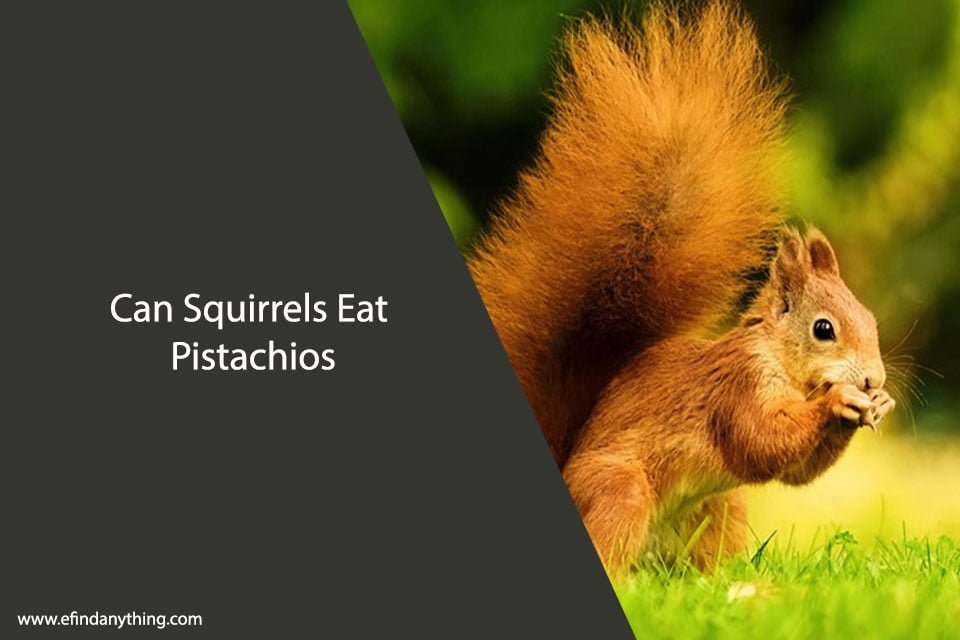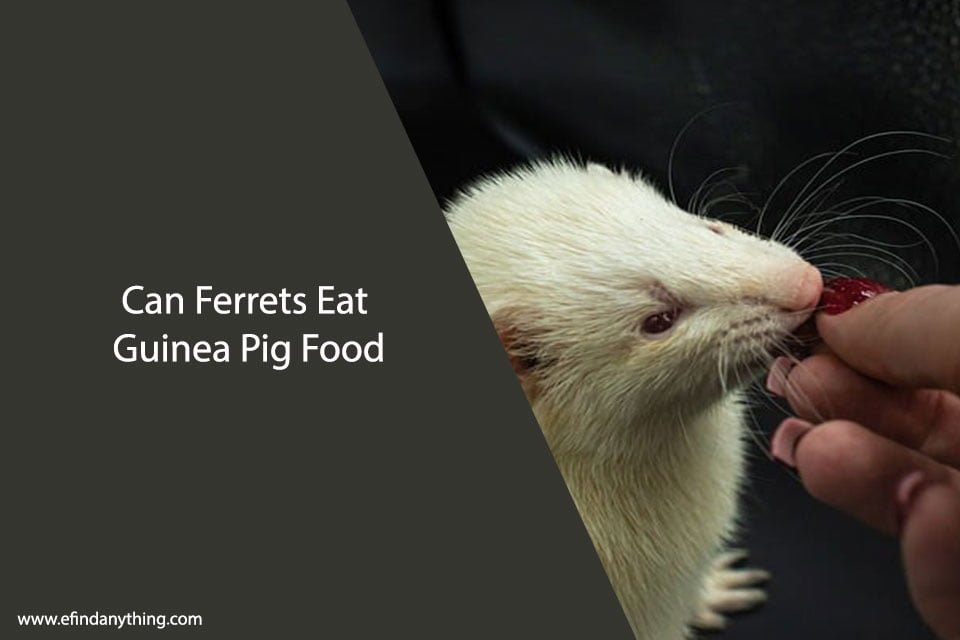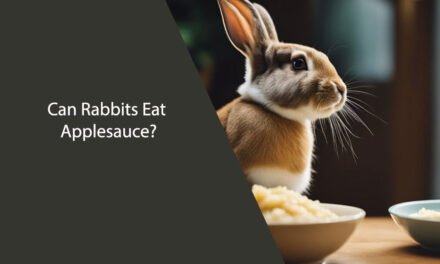Squirrels, being small and agile creatures, are known for their diverse and opportunistic diet. As humans, we often wonder if the snacks and treats we enjoy can be safely shared with these furry friends. One such snack is pistachios, which are widely recognized for their nutritional value and delicious taste. In this comprehensive guide, we will explore the question: can squirrels eat pistachios? We will delve into the nutritional benefits, potential risks, and best practices when it comes to feeding squirrels these tasty nuts.
Table of Contents
Introduction to Squirrels and Their Diet
Squirrels are small mammals that belong to the Sciuridae family. They are known for their bushy tails and impressive acrobatic skills. Squirrels are omnivorous creatures, which means that their diet consists of both plant and animal matter. Their primary food sources include seeds, nuts, fruits, vegetables, insects, and occasionally small animals such as eggs and nestlings.
These animals are not particularly picky eaters, which is why they might be tempted to consume a wide variety of food items. However, not all human foods are safe for squirrels, and it is essential to understand their dietary needs and limitations to ensure their wellbeing.
The Nutritional Value of Pistachios
Pistachios are packed with important nutrients that provide numerous health benefits. They are rich in protein, healthy fats, fiber, antioxidants, vitamins, and minerals. Pistachios are particularly high in vitamin B6, potassium, phosphorus, and magnesium. The high protein content in pistachios makes them an excellent energy source, while their antioxidant properties help to maintain overall health.
Despite being high in calories due to their fat content, the majority of the fat found in pistachios is considered “good” fat, as it is primarily composed of monounsaturated and polyunsaturated fats. These healthy fats can promote heart health and help lower bad cholesterol levels.
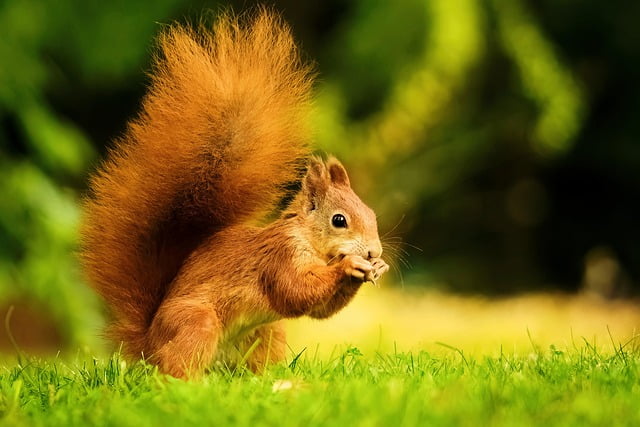
Can Squirrels Eat Pistachios? The Short Answer
Yes, squirrels can eat pistachios. These nuts are considered safe for squirrels to consume, but only in moderation. While pistachios offer essential nutrients and health benefits, they are also high in calories and fat, which can be detrimental to a squirrel’s health if consumed in large quantities.
It is crucial to note that young squirrels should not be fed pistachios or any other nuts, as their delicate digestive systems are not yet capable of handling such food items. Adult squirrels, on the other hand, can enjoy pistachios as an occasional treat.
The Ideal Nut Choices for Squirrels
While pistachios are safe for squirrels to consume, they are not the most ideal nut choice for these animals. Squirrels typically prefer natural nuts such as hazelnuts, walnuts, and almonds. These nuts provide a more balanced nutritional profile for squirrels and are less likely to cause health issues when consumed in moderation.
When choosing nuts for squirrels, it is essential to avoid high-sugar nuts and overly salty foods. Excessive sugar and salt can be harmful to squirrels and should be limited in their diet.
The Proper Way to Feed Pistachios to Squirrels
If you decide to feed pistachios to squirrels, it is essential to do so responsibly. Follow these guidelines to ensure that the squirrels can safely enjoy this treat:
- Opt for unsalted, raw pistachios: Squirrels should not consume high levels of salt, as it can be toxic to them. Choosing unsalted pistachios will help to minimize the sodium content and provide a healthier option. Raw pistachios are also preferable, as they are free from additives and preservatives that may be harmful to squirrels.
- Limit the quantity: As mentioned earlier, pistachios should be consumed in moderation due to their high calorie and fat content. It is recommended to feed squirrels no more than two pistachios per day.
- Remove the shells: Pistachio shells can pose a choking hazard to squirrels. Ensure that the shells are removed before offering the nuts to these animals.
Potential Risks of Overfeeding Pistachios to Squirrels
Feeding squirrels excessive amounts of pistachios can lead to several health complications. Some of the potential risks associated with overfeeding pistachios to squirrels include:
6.1 Gastrointestinal Problems
Consuming large quantities of pistachios can cause gastrointestinal issues in squirrels, just as it can in humans. Overeating pistachios may lead to bloating, constipation, nausea, vomiting, abdominal pain, and diarrhea. To prevent these digestive issues, it is essential to limit the number of pistachios fed to squirrels.
6.2 Sodium Poisoning
Squirrels are at risk of sodium poisoning if they consume excessive amounts of salt. High salt intake can damage their kidneys and lead to kidney problems such as kidney stones. To minimize this risk, always choose unsalted pistachios when feeding them to squirrels.
6.3 Weight Gain
As mentioned earlier, pistachios are high in calories and fat. Feeding squirrels excessive amounts of these nuts can lead to weight gain, which can negatively impact their overall health and agility. Squirrels need to maintain a lightweight to navigate their environment and evade predators effectively. Overweight squirrels may struggle with mobility and become more susceptible to predation.
Types of Pistachios Suitable for Squirrels
Not all varieties of pistachios are ideal for feeding to squirrels. It is crucial to choose the right type of pistachio to ensure the animal’s safety and wellbeing. Here are some suitable pistachio varieties for squirrels:
- Turkish Antep Pistachios
- White Pistachios
- Green-skinned Pistachios
- Kernel Pistachios
- Iranian Long Pistachios
Always avoid feeding squirrels red pistachios, as they contain a dye that may not be suitable for these animals.
Pistachios and Squirrel Life Expectancy
Some studies have suggested a link between pistachios and an increased life expectancy in squirrels. While the exact reasons for this correlation are not yet fully understood, it is believed that the high nutritional value of pistachios may contribute to better overall health and longevity in these animals.
However, it is important to remember that pistachios should be fed to squirrels in moderation and as part of a balanced diet. Relying solely on pistachios or overfeeding them to squirrels can lead to health issues and negate any potential benefits.
Alternatives to Pistachios for Squirrels
If you are looking for alternative treats to feed squirrels, consider the following options:
- Hazelnuts: These nuts are a favorite among squirrels and provide a range of essential nutrients, including vitamins, minerals, and healthy fats.
- Walnuts: Another popular choice for squirrels, walnuts are rich in omega-3 fatty acids, which can promote brain health and reduce inflammation.
- Almonds: While almonds are safe for squirrels, they should be fed in moderation due to their higher fat content.
- Sunflower seeds: These seeds are a nutritious option that can provide squirrels with protein, healthy fats, and various vitamins and minerals.
- Fresh fruits and vegetables: Squirrels can benefit from a variety of fruits and vegetables, including apples, berries, carrots, and leafy greens.
Remember to always feed these treats in moderation and as part of a balanced diet to ensure the squirrel’s overall health and wellbeing.
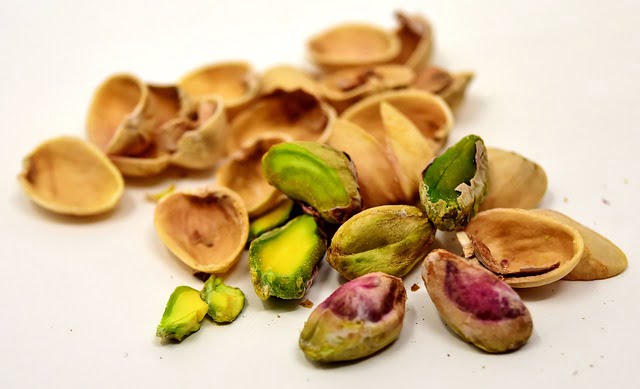
Conclusion
In conclusion, squirrels can indeed eat pistachios, but only in moderation. While these nuts offer valuable nutrients and health benefits, they are also high in calories and fat, which can be harmful to squirrels when consumed in large quantities.
When feeding squirrels pistachios, always choose unsalted, raw varieties and limit their intake to no more than two per day. Additionally, consider providing alternative nut options and a variety of fruits and vegetables to maintain a balanced and healthy diet for these animals.
By following these guidelines, you can ensure that squirrels can safely enjoy pistachios and other treats while maintaining their overall health and wellbeing.

